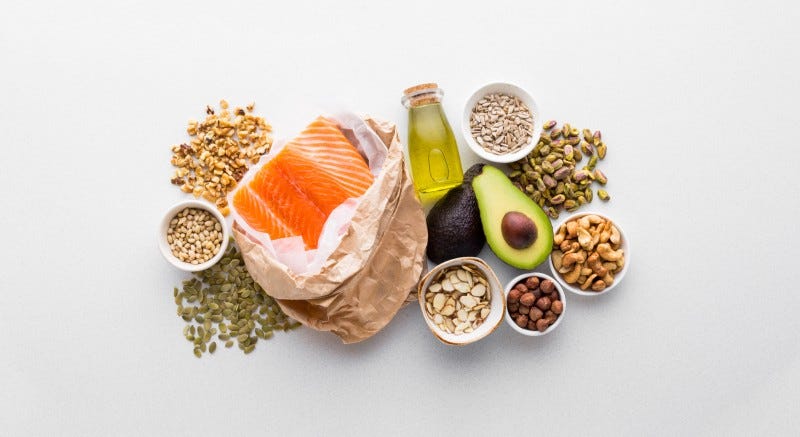Eating for long term health and vitality

Inflammation — what is it and why is it important?
There are two types of inflammation that happen in our body, acute and chronic. Acute inflammation is welcome, it’s when our bodies’ immune cells migrate to a point to fix and clear infection or damage — think a swollen ankle from an injury, or a sore throat from an infection.
Once the initial damage is reduced, or bacteria or virus killed, our bodies bounce back quickly, and the overall impact to our bodies is fairly minor.
Chronic inflammation however, can be detrimental. This is a systemic inflammation, meaning it’s occurring throughout the whole body, and constantly, which, over time has damaging effects. When our bodies are inflamed constantly, and all our immune and inflammatory cells are working overtime, it can cause damage to our cells meaning our body tissues and processes begin to break down.
Diabetes, IBS (irritable bowel syndrome) and other digestive conditions, hormonal and thyroid issues, heart disease and rheumatoid arthritis are just some conditions created by chronic inflammation.
How do we get into a state of chronic inflammation?
Although there are uncontrollable factors that promote chronic inflammation (e.g. pollutants or radiation), there are a number of inflammatory factors we can work to control and reduce.
- Reducing inflammatory foods, these are — sugar and artificial sweeteners, food additives, saturated and trans fats and foods that trigger intolerances, if applicable (e.g. dairy for those who have dairy intolerances)
- Following a high plant-based diet, along with increasing intake of anti-inflammatory foods
- Maintaining a healthy body weight, as excess fat stores in certain organs, such as our livers, promote inflammatory responses.
- Reducing alcohol intake, as when consumed in excess, our bodies struggle to process alcohol, and need to deal to it as a toxin. This means our liver must prioritise the metabolising of alcohol, before it can focus on detoxifying all our other bodily toxins. The excess toxins floating around in our bodies stimulate an inflammatory response.
- Avoid smoking, smoking is a major inflammatory agent, with the toxins inhaled causing serious damage to our lung and throat cells, creating a constant inflammatory response when smoked daily.
The effect of inflammatory foods
Continued, excess consumption of food additives, sugar and artificial sweeteners and colourings, saturated and trans fats, all stimulate all inflammatory response in our bodies, and over time this chronic inflammation begins to affect our bodies’ tissues and processes.
Our bodies are well equipped to deal with a little sugar from fruit, or fats from ingredients like eggs, or meat proteins (a balanced diet with real, unprocessed foods), but it’s consumption in excess that our bodies cannot keep up with. Processing abilities of food manufacturers, allow them to pack in plenty of saturated fats and sugars, along with additives like preservatives or flavour enhancers to their products which are not kind to our bodies. It’s not to say we can’t ever have these highly processed foods, but we should be aware of them and possible lower our intake, making them sometimes foods.
This is also the case when we eat foods we have an intolerance to, as our bodies aren’t equipped to break down certain molecules properly (like lactose or gluten). This often occurs in the gut, and the initial irritation onsets symptoms of IBS and digestive discomfort but can begin to affect further tissues if continued.
Eating anti-inflammatory
Salmon — this powerhouse protein is rich in omega-3 fatty acids (the good kind of fat). Omega-3’s are one of the most powerful anti-inflammatory agents. Other good sources of these good fatty acids include avocados, olives and olive oil, walnuts, flaxseeds and white fish.
Plant-based, high fibre foods — fruits, veggies and legumes are all high in fibre, vitamins and minerals, important antioxidant and anti-inflammatory agents. Make sure to eat plenty of these nutrient-dense plant-based foods, a good aim is to have the majority of each meal being plant based.
Where possible, growing our own or buying organic fruits and veggies also ensures the veggies are free from harmful pesticides and toxins, which, you guessed it, are inflammatory also. This isn’t always an option, but washing fruits and veggies with water, salt water or vinegar can help reduce the level of pesticides.
Mediterranean diet — this much talked about way of eating of those who are local to the Mediterranean area has become well-known for its long-term health benefits. Namely due to the high level of anti-inflammatory foods, and reduced amount of inflammatory ingredients. The key themes of this diet include eating mostly plant-based (meaning high levels of fibrous and nutrient dense fruits and veggies), high intake of fish and seafood, consuming minimally processed whole grains, dairy and beneficial fats from olives and avocados in moderation, this diet boasts all the anti-inflammatory foods. There’s little intake of highly processed food and reduced red meat intake, about 1–2 times per week. Alcohol is still consumed however in moderation rather than in excess, and is often red wine, which is rich in antioxidants.
Here at Fresh Start we certainly derive a lot of our ethos from the Mediterranean diet, always looking to fill our plates with colourful fruit and veggies first and foremost, along with other plant-based ingredients like whole grains, legumes, nuts and seeds. We include fish every week, and salmon regularly, and avoid highly processed foods.
Click here to return to Fresh Start.

